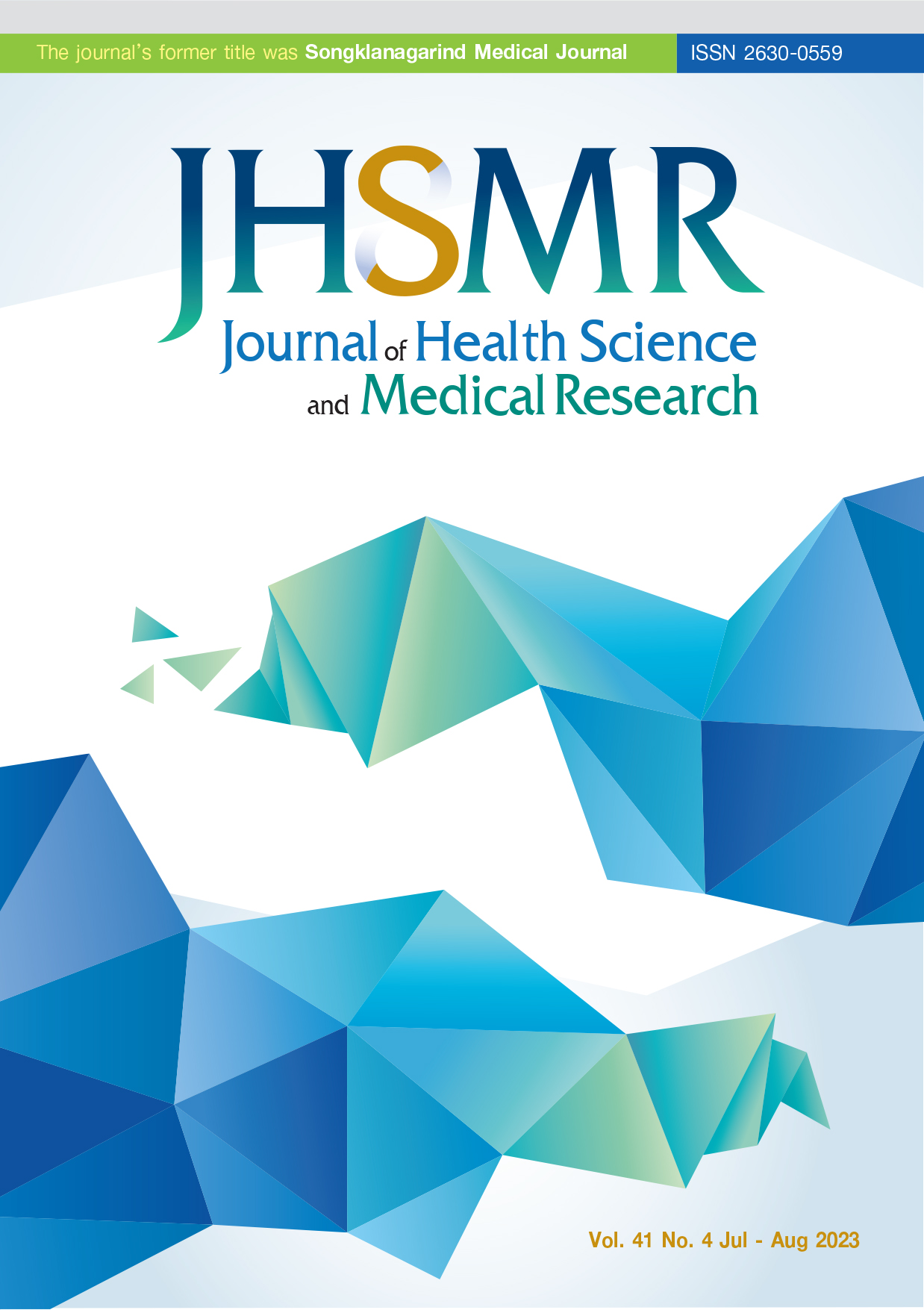Epidemiology of Burn Injury in the Southern Border Provinces of Thailand
DOI:
https://doi.org/10.31584/jhsmr.2023942Keywords:
burns, ThailandAbstract
Objective: This study aimed to investigate burns, from any situation, and the treatment in the Burn Center of Yala Hospital.
Material and Methods: This research was a retrospective study in the Burn Center of Yala Hospital; from April 1, 2019 to May 31, 2021.
Results: Enrollment consisted of 161 burn patients (male 65.8%, female 34.2%). Most burns in children were scalds (67.3%); whereas, in adults and the elderly they were flame burns (51.0% in adults and 66.7% in the elderly) (p-value<0.001), which were usually <20% of total body surface area (p-value<0.001). Most burns were superficial second degree burns. Patients in all age groups required surgical intervention (p-value=0.003). The median length of hospital stay was approximately seven days (IQR4-17); however, the elderly required intensive care more often than other age groups (p-value=0.003). All enrolled cases survived.
Conclusion: The most common cause of burns in adults and the elderly was burning from flames, while burns from scalds occurred most in children. Burns in the elderly were more severe, and required admission to the intensive care unit more than any other age group.
References
WHO. Burns. [homepage on the Internet] Geneva: World Health Organization; 2018 [cited 2016 Feb 18] Available from: https://www.who.int/news-room/fact-sheets/detail/burns.
Zayakova Y, Vajarov I, Stanev A, Nenkova N, Hristov H. Epidemiological analysis of burn patients in East Bulgaria. Burns 2014;40:683-8.
ames SL, Lucchesi LR, Bisignano C, Castle CD, Dingels ZV, Fox JT, et al. Epidemiology of injuries from fire, heat and hot substances: Global, regional and national morbidity and mortality estimates from the Global Burden of Disease 2017 study. Inj Prev 2020;26(Supp 1):i36-i45.
Smolle C, Cambiaso-Daniel J, Forbes AA, Wurzer P, Hundeshagen G, Branski LK, et al. Recent trends in burn epidemiology worldwide: a systematic review. Burns 2017;43:249-57.
Othman N, Kendrick D. Epidemiology of burn injuries in the East Mediterranean Region: a systematic review. BMC Public Health 2010;10:83.
Sarbazi E, Yousefi M, Khami B, Ettekal-Nafs R, Babazadeh T, Gaffari-Fam S. Epidemiology and the survival rate of burn related injuries in Iran: a registry-based study. Ann Burns Fire Disasters 2019;32:3-9.
Racy LM, Singer Y, Schrale R, Gong J, Darton A, Wood F, et al. Epidemiology of burn injury in older adults: an Australian and New Zealand perspective. Scars Burn Heal 2020;6:2059513120952336.
Shah A, Suresh S, Thomas R, Smith S. Epidemiology and profile of pediatric burns in a large referral center. Clin Pediatr (Phila) 2011;50:391-5.
Hollister N. Management of burns. Updat Anaesth 2012;28:133- 40.
Mongkornwong A, Sangthong R, Tunthanathip T, Sangkhathat S. Factors associated with in-hospital mortality in severe burn patients in Songklanagarind Hospital: a retrospective study. J Health Sci Med Res 2021;39:191-200.
Capek KD, Sousse LE, Hundeshagen G, Voigt CD, Suman OE, Finnerty CC, et al. Contemporary burn survival. J Am Coll Surg 2018;226:453-63.
Downloads
Published
How to Cite
Issue
Section
License

This work is licensed under a Creative Commons Attribution-NonCommercial-NoDerivatives 4.0 International License.
























